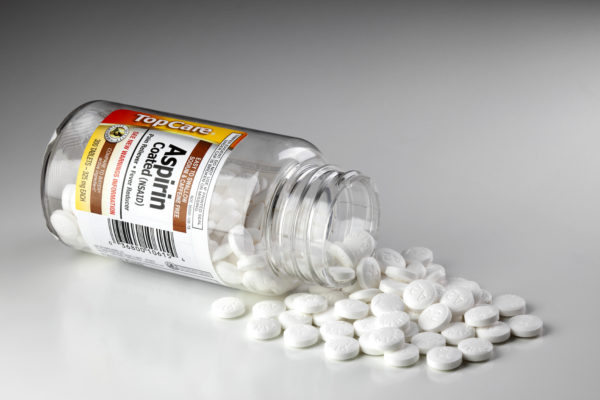
New study results from the American College of Cardiology Scientific Session (ACC.21) suggest that clopidogrel was superior to aspirin for long-term post-stenting maintenance.
Researchers for the prospective, randomized, open-label HOST-EXAM study included 5,436 patients in the study who had all received a coronary stent and who had gone without clinical events for 6 to 18 months following coronary intervention with a drug-eluting stent. Patients were assigned to either clopidogrel 75 mg daily monotherapy or to aspirin 100 mg daily, both for a duration of 24 months. The primary study endpoint was a composite of all-cause death, non-fatal myocardial infarction (MI), stroke, readmission due to acute coronary syndrome, and BARC bleeding type 3 or greater in the intent-to-treat population.
According to the results, the primary study endpoint occurred in 152 (5.7%) of patients in the clopidogrel group vs. 207 (7.7%) in the aspirin group (HR=0.73; 95% CI, 0.59 to 0.90). Blood clotting events, evaluated as secondary endpoints, occurred in 3.8% of the clopidogrel group vs. 5.6% of the aspirin group, and BARC bleeding was higher in the aspirin group as well. All differences in the secondary endpoint measures were statistically significant.
“These results confirm that clopidogrel is superior to aspirin at reducing the incidence of blood-clotting events,” Hyo-Soo Kim, MD, PhD, professor of internal medicine at Seoul National University Hospital in South Korea and lead author, said in a news release. “What is interesting is that clopidogrel also performed better than aspirin at reducing bleeding events. Such findings that one antiplatelet agent is better than the other in reducing both clotting and bleeding events have been observed in other studies comparing different antiplatelet regimens, suggesting that thrombotic and bleeding events are tightly associated with each other. For example, when patients experience bleeding, they stop the antiplatelet agents leading [them to experience] thrombotic events.”
Dr. Kim added that the results only apply to patients who completed the initial 6 to 18 month period of anticoagulation therapy.
“It may be difficult to directly extrapolate our results to patients who received DAPT for a shorter period, such as one or three months,” he said. “However, our results may be useful in helping physicians to select antiplatelet monotherapy for patients who are in the chronic stable phase after coronary stenting.”
The study was published simultaneously in The Lancet. Read the rest of our coverage of ACC.21 here.
Kim H. Aspirin Vs. Clopidogrel During Chronic Maintenance Monotherapy After Percutaneous Coronary Intervention: The Host Exam Randomized Controlled Trial. Presented at: American College of Cardiology Scientific Sessions; May 15-17, 2021.







 © 2025 Mashup Media, LLC, a Formedics Property. All Rights Reserved.
© 2025 Mashup Media, LLC, a Formedics Property. All Rights Reserved.